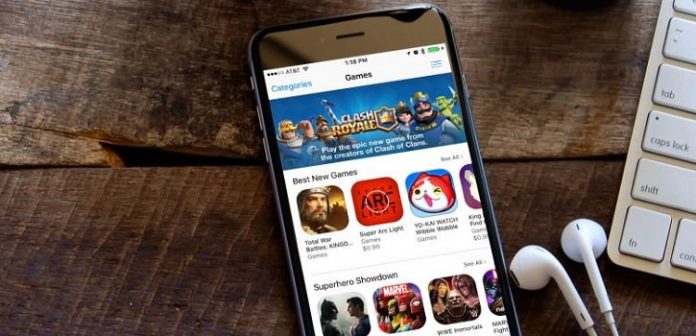Every once in a while, Apple purges its gaming apps on iTunes, so that it can have room for additional applications that are in demand by the public. However, recently, many app developers and fans, especially in Europe, have become angry with the service because of the amount of content that was purged in the name of decency or morality.

The Apps on iTunes
Currently, there are 2.2 million mobile applications available on iTunes for downloads, and that includes everything from information on state parks to mileage checkers to applications that allow you to order from a restaurant. iTunes, which began in the mid-2000s as a source for downloading music, has been a force in apps for the last 10 years. The service allows apps of nearly every type and subject. People are allowed to browse applications and download them. While many applications are free, others can cost between 99 cents and nearly $9.99, depending on the subject. Apple estimates that 60 billion apps have been downloaded since the service began.
Apple’s Guidelines for Apps
Apple makes it clear on its website that it thoroughly checks the applications for content and language, no matter what language the app is in. Apple uses several criteria to judge whether or not the app meets its standards. First, the app must meet the safety standards of the company. That means that when a customer uses the app, his or her information must be safe from hackers. Second, the application must perform the way it is supposed to no matter how many times it is downloaded during the day. Third, the application must meet all the company’s business criteria. Fourth, the design must meet the company’s decency standards, which means the content cannot be what the company calls “objectionable.” The application also must adhere to the company’s legal standards – for example, the application can’t be a copy of another application.
The Current Issue
Apple’s most recent purge has caused problems with developers across the world because the most recent apps the purge took down were popular and did not violate the standards Apple set out in its legal documents. Many developers in Europe said the gaming apps did not breach Apple’s agreement. Examples of nongambling applications that were purged from the platform included an app that allows people to share GIFs, a magazine published in Poland and an app that allows video gamers to share clips of Xbox games they have played with friends.
One of the games purged from Apple’s platform includes a poker simulation game called THTouch. This app had been on Apple’s platform for 10 years, and it does not charge money for people who have downloaded it to play poker. In addition to the simulated poker game, the app also offers simulated games of roulette, baccarat, blackjack, and slots.
Apple released a statement that noted that the company purged many of the apps because of a government call to reduce fraudulent activity online and through applications. It also said in the statement the apps were purge because, in many areas of the United States, gaming online is illegal.
Apple said it is working to bring some of the applications that were unnecessarily booted off back online because they do not involve gaming. Dozens of developers have threatened to file lawsuits because their applications have thousands of users, and, as a result of the purge, they are losing money. Apple said that as soon as it has been determined the applications have not violated the company’s standards and are cleared, they will be returned to iTunes.
Disclaimer: All images are copyright to their respective owners and are used by USA Online Casino for informational purposes only.












